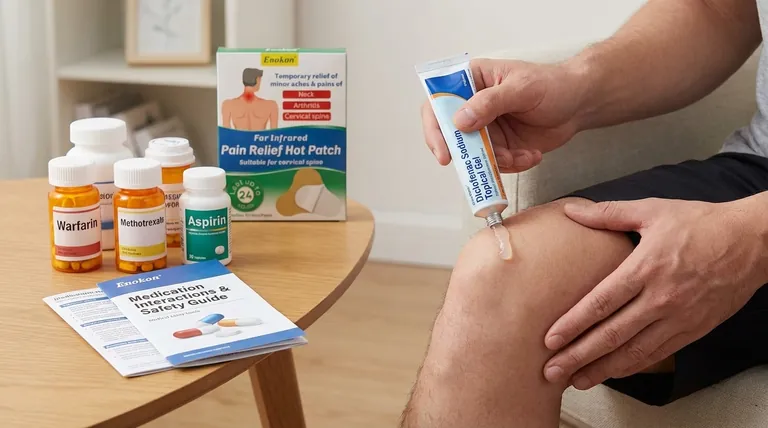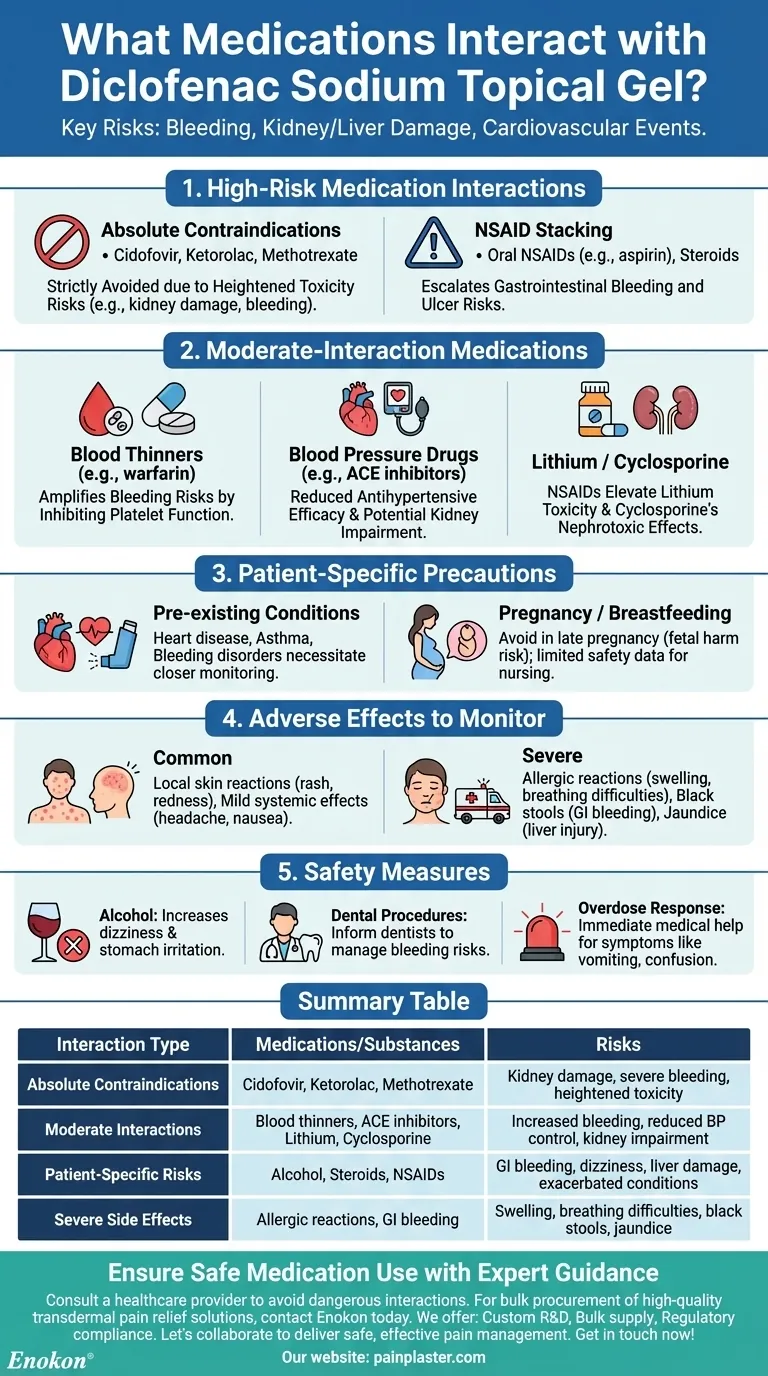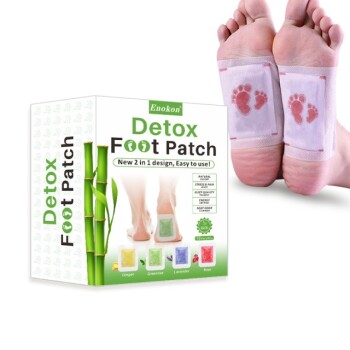Diclofenac sodium topical gel, an NSAID used to treat arthritis-related knee pain, interacts with several medications, increasing risks of adverse effects like bleeding, kidney/liver damage, or cardiovascular events. Key interactions include cidofovir, ketorolac, methotrexate, blood thinners, and steroids. Patients with pre-existing conditions (e.g., heart disease, asthma) or those pregnant/breastfeeding should exercise caution. Side effects range from mild skin irritation to severe allergic reactions or organ damage. Always consult a healthcare provider before combining medications and monitor for symptoms like dizziness or unusual bleeding.

Key Points Explained:
-
High-Risk Medication Interactions
- Absolute Contraindications: Concurrent use with cidofovir, ketorolac, or methotrexate is strictly avoided due to heightened toxicity risks (e.g., kidney damage with cidofovir, bleeding with ketorolac).
- NSAID Stacking: Combining with oral NSAIDs (e.g., aspirin) or steroids escalates gastrointestinal bleeding and ulcer risks.
-
Moderate-Interaction Medications
- Blood Thinners (e.g., warfarin): Diclofenac amplifies bleeding risks by inhibiting platelet function.
- Blood Pressure Drugs (e.g., ACE inhibitors): Reduced antihypertensive efficacy and potential kidney impairment.
- Lithium/Cyclosporine: NSAIDs elevate lithium toxicity risk and cyclosporine’s nephrotoxic effects.
-
Patient-Specific Precautions
- Pre-existing Conditions: Heart disease, asthma, or bleeding disorders necessitate closer monitoring due to exacerbated side effects.
- Pregnancy/Breastfeeding: Avoid in late pregnancy (risk of fetal harm); limited safety data for nursing infants.
-
Adverse Effects to Monitor
- Common: Local skin reactions (rash, redness) or mild systemic effects (headache, nausea).
- Severe: Signs of allergic reactions (swelling, breathing difficulties), black stools (GI bleeding), or jaundice (liver injury).
-
Safety Measures
- Alcohol: Increases dizziness and stomach irritation.
- Dental Procedures: Inform dentists to manage bleeding risks during interventions.
- Overdose Response: Immediate medical help for symptoms like vomiting or confusion.
Always disclose all medications (prescription, OTC, herbal) to healthcare providers to tailor safe usage plans.
Summary Table:
| Interaction Type | Medications/Substances | Risks |
|---|---|---|
| Absolute Contraindications | Cidofovir, Ketorolac, Methotrexate | Kidney damage, severe bleeding, heightened toxicity |
| Moderate Interactions | Blood thinners (e.g., warfarin), ACE inhibitors, Lithium, Cyclosporine | Increased bleeding, reduced blood pressure control, kidney impairment |
| Patient-Specific Risks | Alcohol, Steroids, NSAIDs | GI bleeding, dizziness, liver damage, exacerbated asthma/heart conditions |
| Severe Side Effects | Allergic reactions, GI bleeding | Swelling, breathing difficulties, black stools, jaundice |
Ensure Safe Medication Use with Expert Guidance
If you or your patients use diclofenac sodium gel, consult a healthcare provider to avoid dangerous interactions. For bulk procurement of high-quality transdermal pain relief solutions, contact Enokon today. As a trusted manufacturer of pharmaceutical-grade patches and plasters, we offer:
- Custom R&D for tailored formulations.
- Bulk supply with stringent quality control.
-
Regulatory compliance for global markets.
Let’s collaborate to deliver safe, effective pain management.
Get in touch now!
Visual Guide

Related Products
- Far Infrared Deep Heat Relief Patches Medicated Pain Relief Patches
- Asthma Cough and Pain Relief Patch for Adults and Kids
- Far Infrared Heat Pain Relief Patches Transdermal Patches
- Heating Pain Relief Patches for Menstrual Cramps
- Prostate Pain Kidney Health Care Patch for Men
People Also Ask
- How should pain relief patches be applied and used? A Guide to Safe & Effective Targeted Relief
- What are pain relief patches and how are they used? A Guide to Safe, Targeted Relief
- How effective are pain relief patches for muscle pain? Target Localized Pain with Transdermal Delivery
- How do pain relief patches compare to other pain relief methods? Discover Targeted, Long-Lasting Relief
- How do pain relief patches provide targeted relief? Discover the Science Behind Effective Pain Management
















